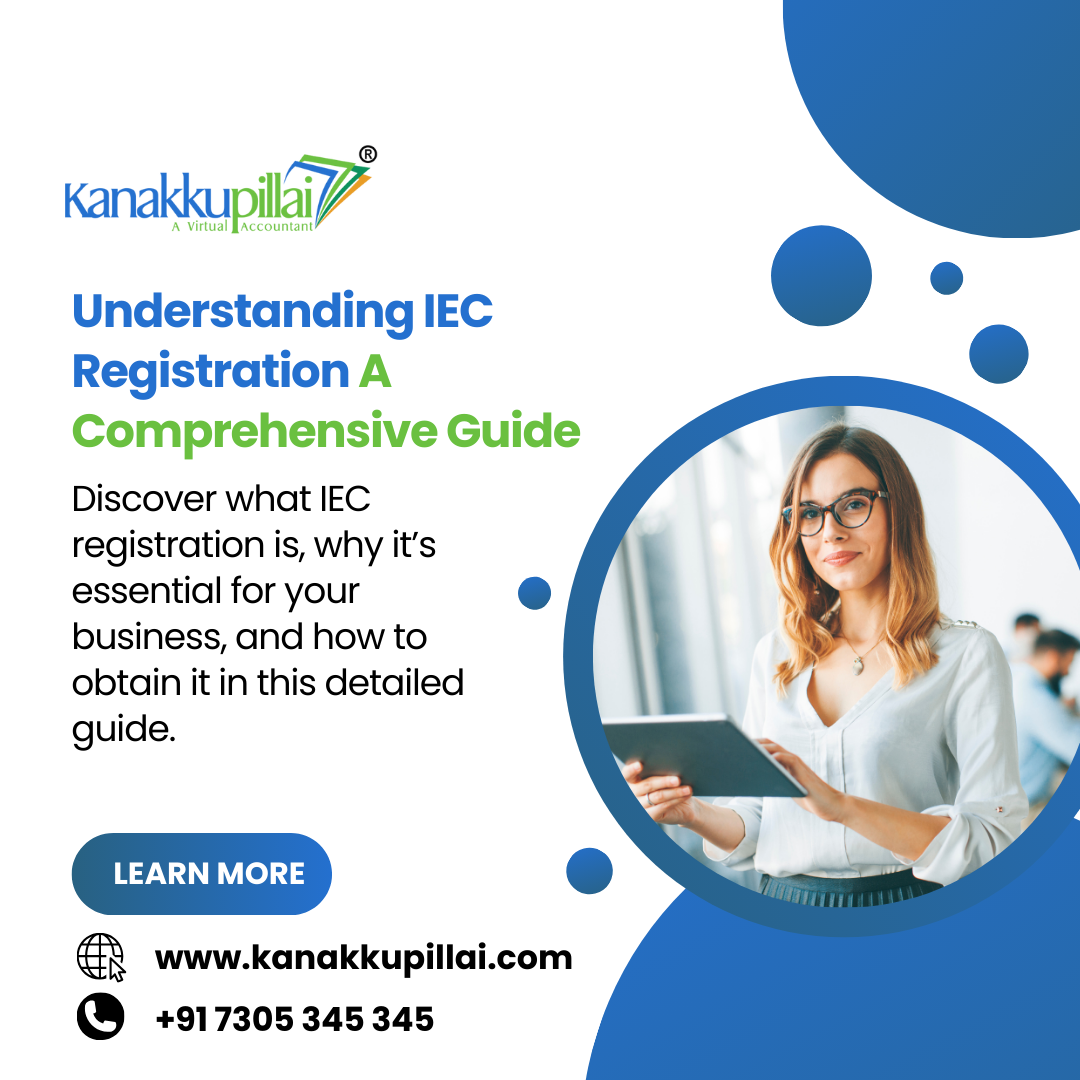Introduction
In today's globalised economy, businesses are increasingly looking to expand their operations internationally. One essential step for companies in India that wish to engage in import and export activities is obtaining an Import Export Code (IEC) registration. This guide will provide a detailed overview of IEC registration, its significance, the application process, and the benefits it offers to businesses.
What is IEC Registration?
IEC Registration is a mandatory requirement for any business entity in India that wants to engage in international trade. Issued by the Directorate General of Foreign Trade (DGFT), the IEC is a 10-digit code that allows businesses to import or export goods and services from and to India. Without this code, no entity can legally conduct international trade.
Importance of IEC Registration
- Legal Requirement: The primary reason for obtaining an IEC registration is compliance with Indian law. It ensures that the government recognises your business for international trade activities.
- Facilitates Trade: The IEC code simplifies the process of importing and exporting goods, making it easier for businesses to navigate customs and regulatory requirements.
- Access to Benefits: Registered entities may also gain access to various government schemes and incentives aimed at promoting international trade.
Who Needs an IEC Registration?
All individuals and entities wishing to engage in import or export activities must obtain an IEC registration. This includes:
- Sole proprietorships
- Partnerships
- Limited liability companies (LLCs)
- Corporations
- Trusts and Societies
Exceptions
Specific categories of importers and exporters are exempt from obtaining an IEC, such as:
- Individuals importing or exporting goods for personal use
- Government departments and agencies
The Application Process for IEC Registration
Obtaining an IEC registration involves a straightforward process that can be completed online. Here's a step-by-step guide:
Step 1: Gather Required Documents
Before starting the application, ensure you have the following documents ready:
- PAN card of the business entity or proprietor
- Address proof (Aadhar card, utility bill, rental agreement)
- Bank details (cancelled cheque or bank certificate)
- Digital signature of the authorised signatory
- Passport-sized photograph of the signatory
Step 2: Fill Out the Application Form
Visit the DGFT website and fill out the online application form (ANF 2A). Ensure all information is accurate to avoid delays.
Step 3: Submit Documents
Upload all required documents along with your application form. It's crucial to ensure that all documents are clear and legible.
Step 4: Pay the Fees
The fee for IEC registration is nominal, typically around INR 500. Payment can be made online through various methods.
Step 5: Receive Your IEC Code
Once your application is processed, you will receive your IEC code via email within a few working days.
Benefits of IEC Registration
Obtaining an IEC registration offers several advantages:
- Global Reach: With an IEC code, businesses can explore international markets, thereby increasing their customer base.
- Simplified Customs Clearance: The IEC facilitates smoother customs clearance processes for imports and exports.
- No Annual Maintenance Fee: Unlike other registrations, there are no annual fees associated with maintaining an IEC.
- Legal Protection: Having an IEC provides legal backing for your international trade activities, protecting you against potential disputes.
- Access to Government Schemes: Registered entities may benefit from various government incentives designed to promote exports.
Common Challenges in IEC Registration
While obtaining an IEC registration is generally straightforward, applicants may face challenges such as:
- Incomplete documentation
- Errors in the application form
- Delays in processing times due to high volumes of applications
To mitigate these issues, it's advisable to double-check all documents and information before submission.
Frequently Asked Questions (FAQs)
What is the validity of an IEC registration?
An IEC registration has no expiration date; it remains valid as long as the business continues its operations. However, it must be updated if there are any changes in the business structure or ownership.
Can I apply for multiple IEC registrations?
No, each business entity can only have one IEC registration. Multiple registrations can lead to legal complications.
Is there any penalty for not having an IEC?
Yes, conducting import or export activities without an IEC registration can result in penalties and legal action from authorities.
Conclusion
In summary, obtaining an IEC registration is a crucial step for any business looking to expand its operations internationally. The process is relatively simple but requires careful attention to detail and compliance with regulatory requirements. By securing this registration, businesses can unlock numerous opportunities in global markets while ensuring they operate within legal frameworks.
For more comprehensive assistance with your IEC registration, consider consulting with experts who specialise in international trade compliance. This proactive approach will help streamline your entry into global markets and enhance your business's growth potential.
By understanding the significance of IEC registration, businesses can make informed decisions that align with their international trade goals and aspirations.





Comments